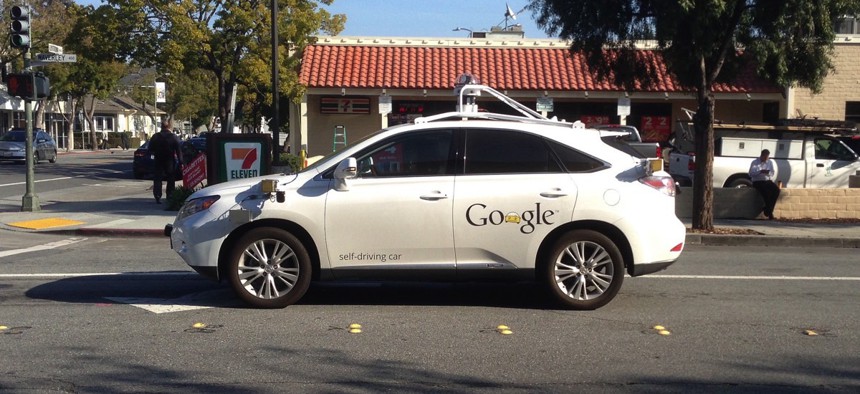Connecting state and local government leaders
States and localities need to partner with automated carmakers—and quickly—to establish an alternative tax system, according to a new Brookings Institution report.
Local governments should look for new revenue streams now because autonomous vehicles are coming and threaten to undermine that important source of funding, according to a report the Brookings Institution released in May.
In the next two decades, disruptive technology is poised to have a variety of impacts on local governments, according to the Brookings report. Although governments are expected to save money because of improved transportation systems and better road safety, revenue from traffic infractions and associated fees is expected to drop drastically since automated cars are designed to adhere to traffic laws.
Google’s self-driving vehicles have yet to be involved in crash where the automated vehicle has been at at fault. The tech giant’s fleet of 48 automated cars have been involved in 14 “minor” accidents since 2009, but they have been caused by other “human” drivers on the road.
Per Brookings:
It turns out that automated vehicle technology—unlike humans—abides by the law. And that’s bad news for local government revenues. In other words, once driverless cars become mainstream, deep revenue sources acquired from driving-related violations such as speeding tickets and DUIs will decrease greatly. In fact, Tesla’s CEO, Elon Musk, predicts the tremendous safety record of driverless vehicles will ultimately demand the banning of non-driverless vehicles on public roadways. Such a law would only accelerate an already fast-paced evolution of the way we use local transportation. As the transition to driverless cars becomes the norm in the years to come, this safety record will mean that vehicles can travel faster and closer together on the roadways, which, when combined with alternative fuel technologies, can contribute to efforts to lower emissions and may help lessen the amount of physical space dedicated to roadways.
The city of Los Angeles made about $161 million off parking violations in 2014 and California cities around $40 million from towing fees. But traffic-related deaths could be all but eliminated—32,675 last year in the U.S. alone.
The federal government covers, on average, 4 percent of crash costs and state and local government 3 percent, according to the National Highway Traffic Safety Administration. That’s $10 billion out of taxpayers’ pockets a year.
But the cost savings get better, according to Brookings:
Specifically, when congestion occurs, computerized systems will divert a certain percentage of vehicles off the highways and onto surface streets. This will cut travel times, reduce fuel wasted while sitting in traffic, and improve productivity. Moreover, AV systems will likely adjust routing patterns for trucks and other heavy vehicles to avoid vulnerable infrastructure, thereby cutting costs and preserving the lifespan of critical roadways, and bridges.
In a future where nearly all vehicles are automated, stoplights won’t be necessary because cars can enter intersections all at once and manage to avoid each other.
It remains to be seen whether local governments simply accept self-driving vehicles or partner with emerging tech companies on their implementation.
A user fee system paid via mobile app could unlock cars or start engines and bill drivers on a per mile basis to cover public road maintenance. But establishing such a system would require local government to react quickly to the changing tech climate or else be relegated to obsolescence on these issues.
(Photo by Ed and Eddie / Flickr.com)
Dave Nyczepir is News Editor for Government Executive’s Route Fifty.

NEXT STORY: Agencies adjust FOIA processes




